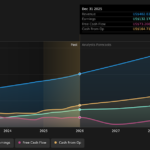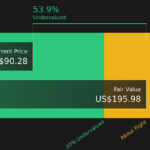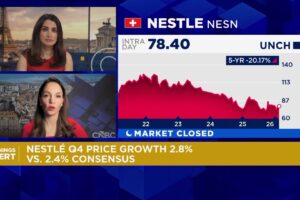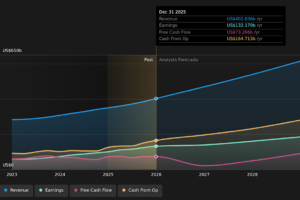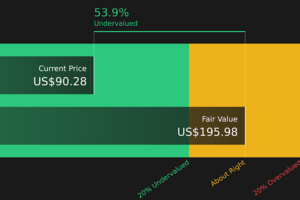When talking to investors, one of the things we do not like to hear is, “That stock has gone up too much, I’m not going to buy it,” or, “That stock is too expensive on valuation.” We think automatically giving up on a stock because it is “expensive” does investors a disservice. We think a much better question is, “Why is that stock expensive?,” or, “What do the buyers of that stock see that I don’t?”
A stock, of course, does not know it is expensive. Its valuation is simply what investors are willing to pay.
Stock A might trade for seven times earnings, or price-to-earnings ratio (P/E). Stock B might trade at 65 times earnings. Many investors might instantly assume that Stock A is “better” since it is cheaper. But in many, many instances they would be wrong. We have had far more investment success buying “expensive” companies than we ever have had by buying “cheap” companies.
Often, stocks are expensive for very valid reasons. Stocks that are cheap often have lots of problems. In a future column we will discuss some reasons why stocks might be cheap. But today, let’s focus on five factors that might make a stock seem expensive, but where it might still be a good buy.
Sometimes stocks get an expensive valuation because of high growth. A stock might be up 100 per cent in a year. Many this year are. But investors can also see situations where earnings at a company are moving up faster than the share price. In this case, a stock up 100 per cent might be cheaper than it was last year because of these rapidly rising earnings.
This is why it is so important to look at the fundamentals and not just the share price. We might as well look at Nvidia Corp. as an example, since it is such a well-known stock now. Its share price is up more than 185 per cent this year. Its price-earnings multiple based on January 2025 fiscal year earnings is 52 times. But that multiple is below the stock’s 10-year average, which has been, at times, above 100 times earnings. Based on that metric alone, the market is valuing Nvidia cheaper than its recent history, even after the stock’s big gains.
Stocks can get expensive if they have a competitive moat or protectable business. This can sometimes be hard to spot, but the numbers can provide some clues. A company that grows faster than its competitors, year after year after year, is certainly doing something right. A company that serves customers who are very reluctant to change (think health care) has an advantage over newer companies trying to break into the industry. A company with dominant market share has an advantage because customers need to be convinced to go elsewhere and it is a high-risk decision for them. A good example here is IBM in the 1970s. Its computer hardware dominance was massive. Any customer going to a competitor took a very big risk, as IBM was considered the gold standard and worth paying for. Going to “Bob’s Computers” was too risky a business decision for a purchasing manager.
Often, stocks can be expensive because of quality management. A reliable management team, in our view, is worth paying up for. A team that has created, grown and sold companies before is worth paying attention to. This is especially true for an acquisitive company. If a company can get a premium stock valuation because of its management, then it has an advantage in the market, where it can use its “expensive” stock to make acquisitions at attractive prices. Many “roll up” companies (which are in an acquisition phase) take advantage of this and see high growth in their early years. Investors are willing to pay premium valuations as long as the company continues to make good deals. And good management teams typically do.
Stocks can get expensive if the company is in a very fast-growing business. The company may not be that great, but if the sector is seeing huge growth then investors will hop on board. A rising tide, of course, can lift all boats. The easiest examples today are the crypto currency sector and the artificial intelligence sector. We are seeing lots and lots of very expensive stocks because these sectors are growing so fast and attracting huge investor capital. Not all of the stocks in these sectors are good, of course, and this is where we think investors need to be a bit more careful when looking at valuations.
We will be brief here, as special circumstances could mean just about anything, but at times can make a stock expensive on typical valuation metrics. A company could be a takeover target. It could be a potential winner of a lucrative lawsuit. It might be a drug company developing a multibillion-dollar product that has seen good early clinical trials. It might be a small company that has just won some giant contracts. Any of these could make a stock expensive. The key for investors in such a case is deciding whether that premium valuation is sustainable or will the premium vanish once the news is out about the special circumstances.
In summary, we think it is very unwise to dismiss a stock on valuation alone. Sometimes, that premium valuation can be completely justified and sustainable, and investors can miss out on big gains by focusing too much on a single metric.
Peter Hodson, CFA, is founder of 5i Research Inc., an independent investment research network helping do-it-yourself investors reach their investment goals. He is also portfolio manager for the i2i Long/Short U.S. Equity Fund. (5i Research staff do not own Canadian stocks. i2i Long/Short Fund may own non-Canadian stocks mentioned.)
If you like this story, sign up for the FP Investor Newsletter.
Bookmark our website and support our journalism: Don’t miss the business news you need to know — add financialpost.com to your bookmarks and sign up for our newsletters here.



